COVID-19 is Yet Another Health Threat to the Blackfeet Reservation of Montana
American Indians historically suffered through epidemics brought by foreign invaders that, time after time, nearly extinguished them. So, the current pandemic is not as much an existential threat for the Blackfeet Nation, as another layer in the understory of chronic health concerns rooted in decades of deprivation. Strict quarantine regulations since March have greatly safeguarded the tribe’s members from COVID-19. But the instability and poverty of generations before have left a legacy of poor health that can make the nearly 10,000 members more susceptible to the coronavirus. Read on for more insight.
The COVID-19 pandemic reached the state of Montana on March 14th with the first four confirmed COVID-19 cases. By the end of May, Montana had 479 cases and 17 deaths. While most of the state is slowly opening up, the Blackfeet Reservation remains closed. Since mid-April, the daily cases have ranged from 0 to 20. In the wide open spaces, the worst seems to have passed.
But not so the rates of cancer, diabetes, cardiovascular disease, and chronic respiratory disease on the Blackfeet Reservation. The Montana Healthcare Foundation reports that these conditions are higher among people living on the reservation than for those outside the tribal areas. According to the CDC, this means that COVID-19 continues to present a greater risk to the Blackfeet than other Montanans. In particular, the Blackfeet Nation fears the ways the pandemic could turn back the clock to darker days.
Once a vibrant, hearty and resilient people thriving in seasonal camps across the Northern Plains, the Blackfeet were decimated between 1836-1840 by smallpox, a disease they called “rotting face.” Nearly two-thirds of the population died. What followed was a very dark period leading to their further decline. The Blackfeet were moved onto reservations in the mid-1800s. Their formally nomadic lifestyle ended, their naturally varied diet was severely restricted, and periods of starvation left the Nation weak and demoralized.
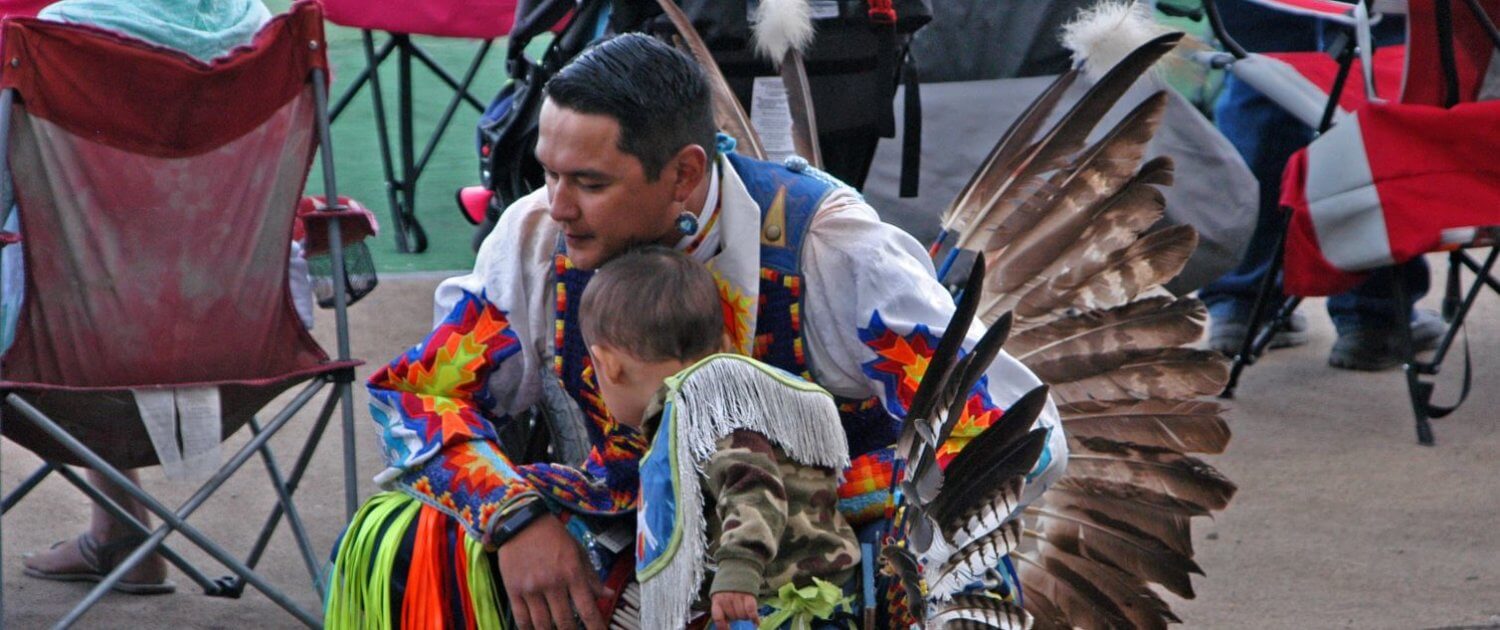
Amidst the staggering death toll, the Blackfeet lost heart, says Adrian Heidenreich, professor of Native American Studies at Montana State University-Billings. Some saw it as evidence that the Great Spirit had turned away from them. They were suspicious of other tribes and of white people for causing the disease. Afterwards, famines and other causes of food insecurity eroded the diet of the Blackfeet until the modern-day chronic conditions arose.
No wonder Blackfeet tribal leaders ordered a swift and strict quarantine with the onset of COVID-19.
In Glacier County, where the reservation is located, there have been a total of six confirmed COVID-19 cases and one death. Despite the significant disease containment, the Blackfeet Tribal Council extended preventive measures through the end of May. Although geographically isolated and spread out, the population is vulnerable, and the Tribe’s worry is based on the history and current reality of the Blackfeet people.
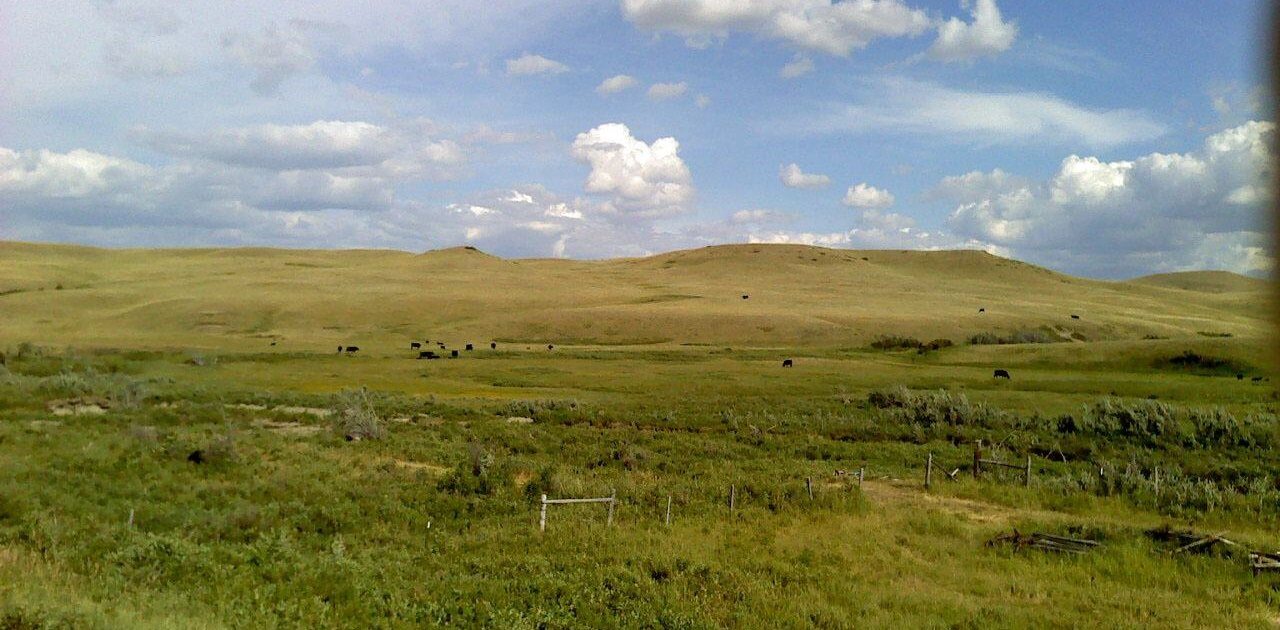
While the Indian Health Service (IHS) provides health care to members of federally recognized tribes, the federal agency is chronically underfunded, tribal officials say. Not all tribal members have access to an IHS facility, and if they do, there is no guarantee the facility will have enough ICU beds, ventilators, and staff to handle an influx of patients. But, there are other worries as well.
According to the Blackfeet Tribal Health Department’s community health assessment of 2017, the reservation’s primary health concerns also include mental illness, substance abuse, and suicide. Added to this are homelessness and overcrowding while 150 families wait for a permanent home.
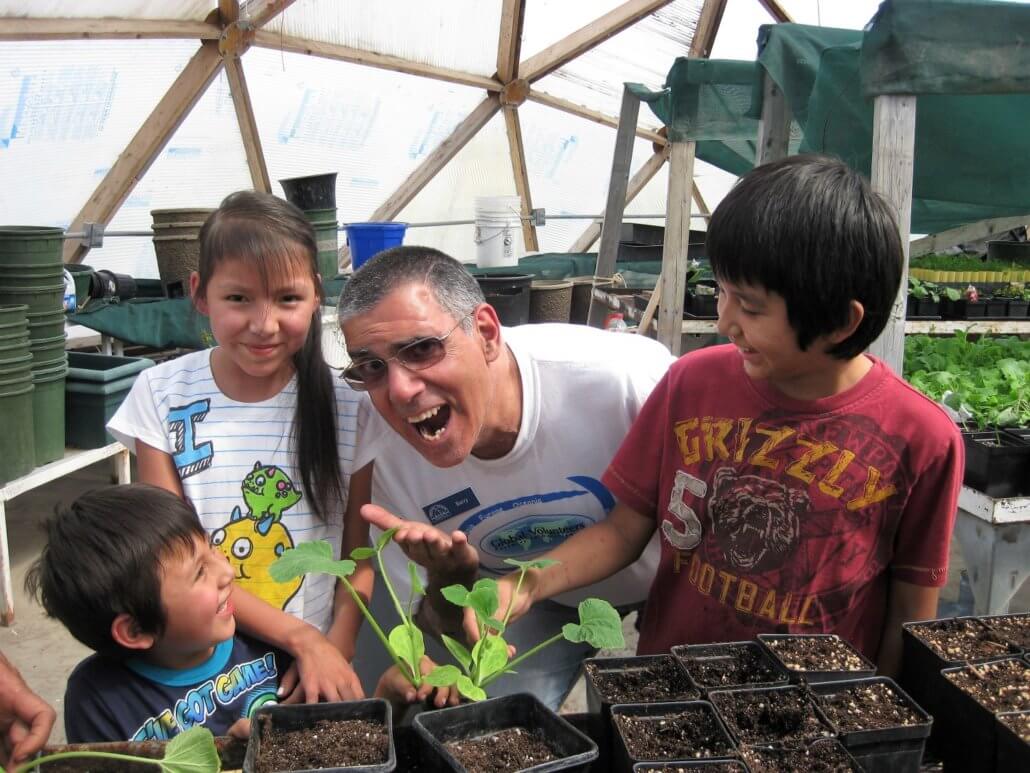
Volunteer Barry Sirini helps move seedlings 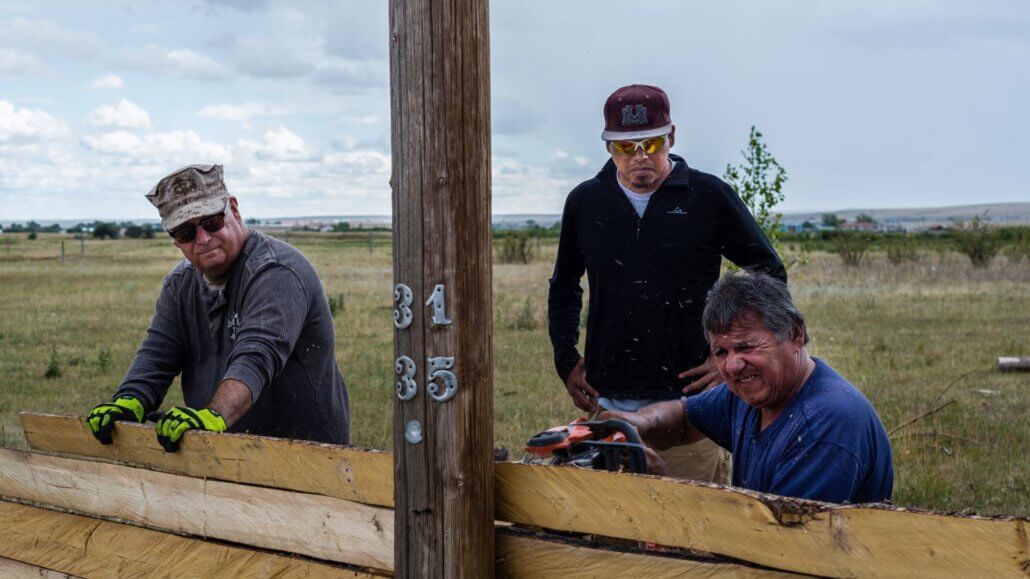
Volunteer Mike Harris helps build a fence 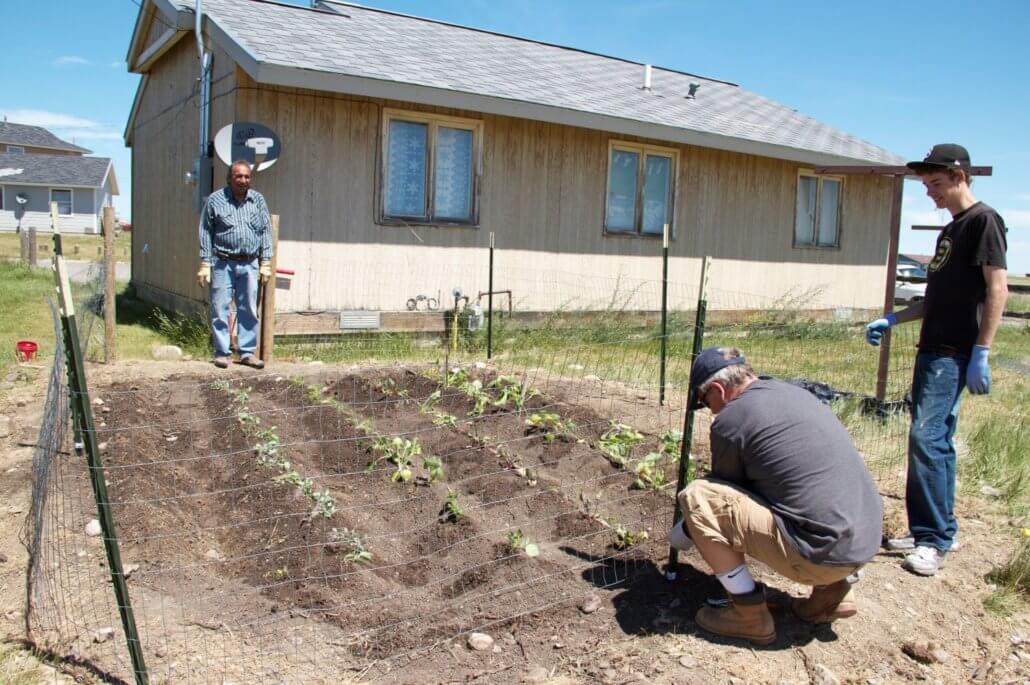
Volunteers help plant a “Heathy Heart” garden 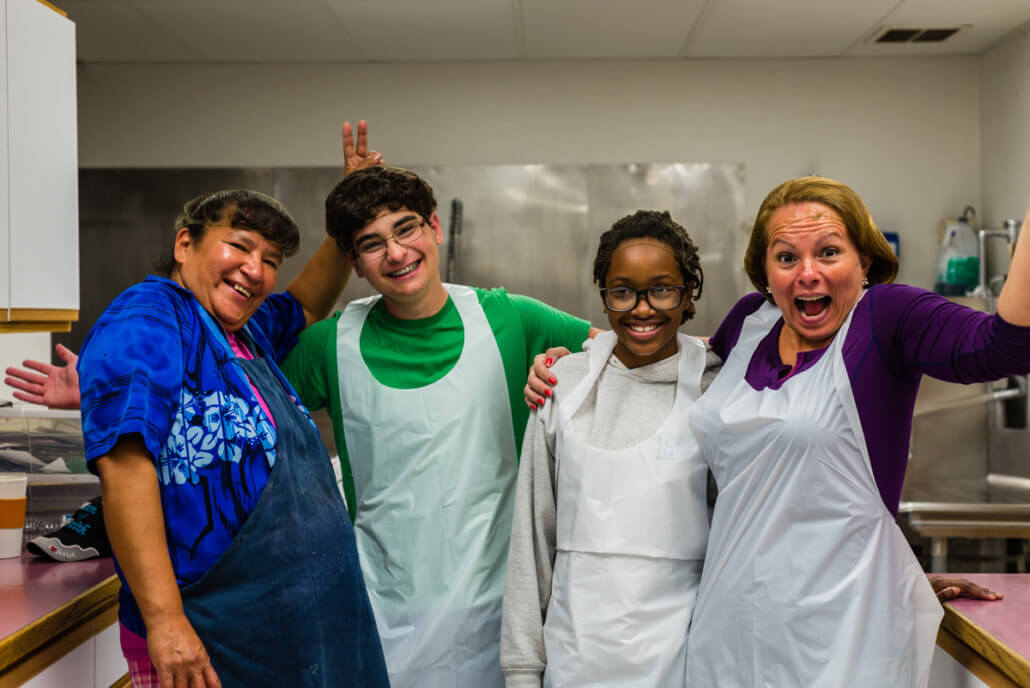
Enrolled Member Maria Wagner directs volunteers Gabe Keynan, Shea Sproste, and Ana Wolanin at the Eagle Shield Senior Care kitchen.
Global Volunteers strives to support the Blackfeet people in many of these areas by preparing meals and extending friendship to Blackfeet elders; assisting on summer programs for children; working at a community food bank and thrift store; and repairing community buildings and elders’ homes. Working for over 20 years with our community partners, we try to tackle some of the reservation’s most pressing needs through the assistance and support of short-term volunteers in May-August. But as COVID-19 has restricted our presence on the reservation in 2020, the community will need greater volunteer support when conditions allow us to return. In the meantime, please consider supporting Global Volunteers with a donation to ensure our program can continue through these difficult months.
You may also like:

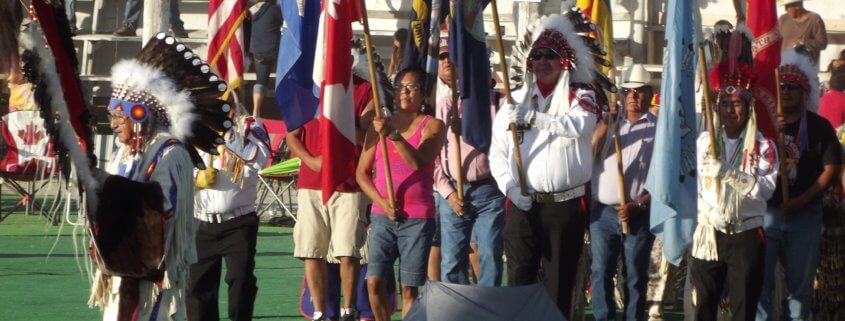 Global Volunteers 2020
Global Volunteers 2020

Leave a Reply
Want to join the discussion?Feel free to contribute!